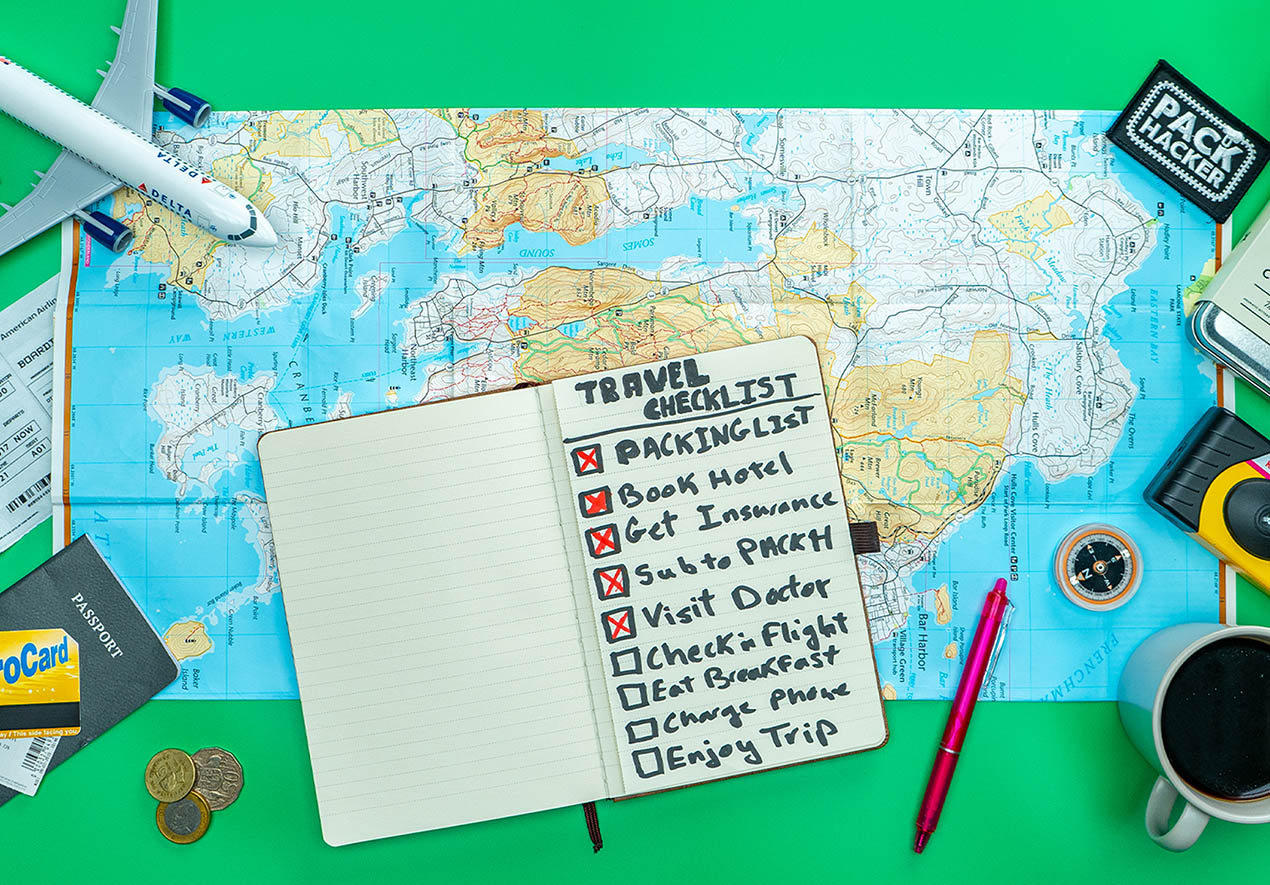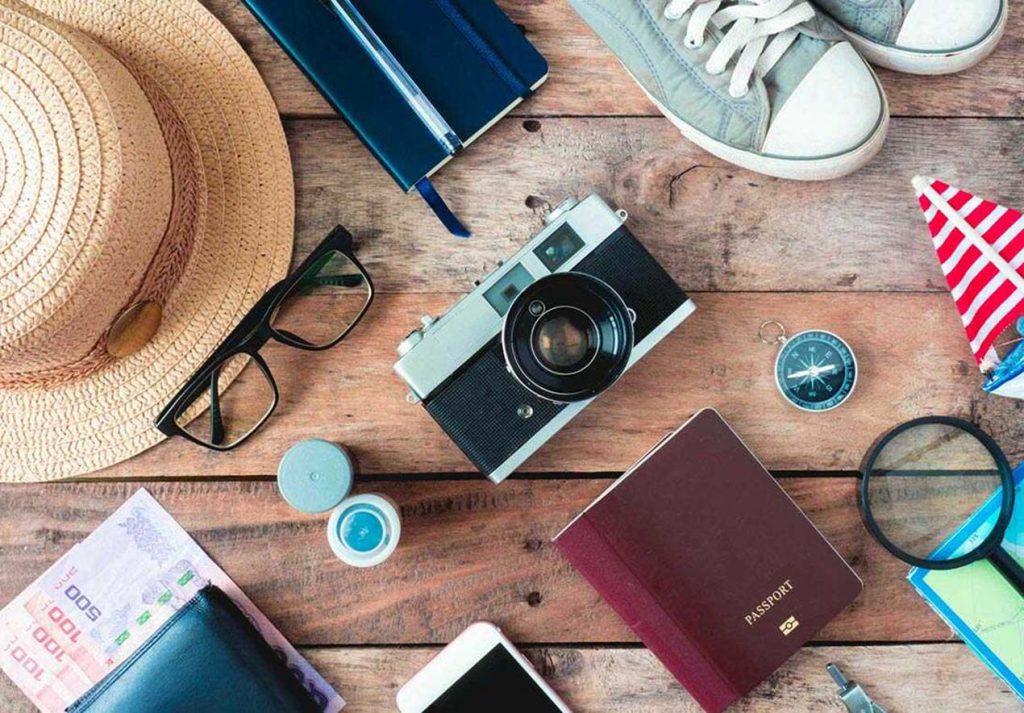I’ve witnessed a wide range of challenges that come with traveling—delayed flights, lost luggage, language barriers, and culture shock—all of which can add significant stress to your journey. While traveling is undoubtedly filled with excitement and the joy of exploration, it often comes with unavoidable pressures. Especially when you’re in an unfamiliar place, trying to adjust to a new environment, culture, and schedule, that stress can feel even more intense.
To help make your travel experiences more enjoyable and less stressful, I’ve compiled seven practical tips that I personally swear by. These strategies not only help you manage stress when you’re already at your destination but also minimize potential headaches during the planning stage. Whether it’s preparing for your trip or handling emergencies once you’re abroad, mastering these techniques will allow you to enjoy your travels with fewer worries and more fun.
1. Plan Ahead to Avoid Last-Minute Rush
Travel stress often comes from uncertainty and feeling rushed. I remember when I first started traveling, I often made impromptu decisions and didn’t plan well enough. When I arrived at my destination, I found myself constantly rushing around and handling issues that could have been prevented with a little preparation. Since then, I’ve learned the importance of a detailed travel plan in advance.
Pre-Trip Preparation:
- Book Flights and Accommodations Early: Even if your destination isn’t a tourist hotspot, I always recommend booking your flights and accommodations ahead of time. This not only saves money and avoids the stress of finding a place to stay at the last minute, but it also gives you more time to plan other details.
- Research the Local Culture and Customs: I make it a point to learn about local customs, etiquette, and even a few common phrases in the local language. This helps me avoid embarrassing situations caused by cultural differences and makes it easier to blend in with the locals.
- Draft a Rough Itinerary: While I love spontaneous travel, especially when I’m in a new city, having a rough itinerary is incredibly helpful for efficiency and reducing stress. Knowing where you’re going and what you’d like to do gives you a sense of direction, making the trip much more enjoyable.
My Experience:
I once traveled to Southeast Asia without much preparation, and when I arrived, I realized that my accommodation was subpar, and I didn’t speak the local language. The anxiety I felt was overwhelming, but luckily, the hotel staff helped me out. Ever since then, I make sure to carefully plan every trip in advance.
2. Master the Art of Packing: Travel Light and Avoid Overpacking
Another major source of stress during travel is your luggage. I remember my early days as a backpacker, when I would pack way too much. I ended up lugging around a heavy bag, which was exhausting, and I would spend too much time organizing it once I arrived. Over time, I’ve learned how to pack light, and this has dramatically reduced the stress I feel while traveling.
Packing Tips to Make Your Life Easier:
- Avoid Overpacking: Before I start packing, I always make a checklist to see what I really need. Essentials like your phone charger, toothbrush, and toiletries are a must, but I try to avoid unnecessary items like “extra clothes” or “just-in-case” gadgets.
- Choose Versatile Clothing: I make sure to check the weather forecast ahead of time and choose clothing that can be mixed and matched. This reduces the number of clothes I need to bring and also helps avoid packing items I’ll only wear once. For example, I prefer clothes that are easy to wash and quick to dry, so if something gets dirty, I can clean it without hassle.
- Use Packing Cubes and Travel Bags: To keep everything organized, I use packing cubes to separate my clothes and smaller items. This not only saves space but also makes it easier to find what I need quickly, avoiding the frustration of digging through my bag at the airport or hotel.
My Experience:
On a recent trip to Europe, I decided to bring only the bare essentials. It made my journey so much smoother. I easily grabbed my luggage, quickly found a taxi, and didn’t feel weighed down by unnecessary items. That feeling of freedom was priceless.
3. Take Care of Your Health: Combat Fatigue on the Road
Long flights, time zone changes, and climate differences often leave me feeling drained. As someone who travels frequently, I’ve learned that maintaining my health while on the road is crucial—especially during long-haul flights or busy travel schedules. Staying healthy ensures that I can enjoy my trip without feeling sluggish or unwell.
Health Tips for Travelers:
- Be Mindful of Your Diet: While it’s exciting to try new foods, I try not to overindulge in rich, heavy, or unfamiliar dishes. Irregular meals and overeating can cause digestive issues and take away from the enjoyment of your travels.
- Stay Hydrated: Airplanes can be incredibly dry, and dehydration can sneak up on you, especially during long flights. I always carry a water bottle with me and make a conscious effort to stay hydrated throughout the flight and while I’m on the ground.
- Get Some Light Exercise: While you might be tired after a long day of travel, a little movement goes a long way. I make sure to get up and stretch during long flights, and once I reach my destination, I like to go for a light jog or a walk to energize myself.

My Experience:
I once flew over 10 hours without drinking enough water, and when I landed, I felt completely exhausted and unwell. I ended up spending two days recovering from the dehydration. Since then, I’ve made hydration and light exercise a priority during my trips.
4. Adjust to Time Zones: Set Your Body Clock Right
Adjusting to new time zones is one of the hardest parts of international travel. The jet lag can be brutal, and if you don’t manage it well, it can affect the entire mood of your trip. I’ve had my fair share of sleepless nights after arriving in a new destination, but over time, I’ve learned strategies to adjust more easily.
Tips for Coping with Jet Lag:
- Adjust Sleep Patterns Before You Leave: A few days before my trip, I try to gradually shift my sleep schedule to match the time zone of my destination. This helps reduce the shock to my body when I arrive.
- Expose Yourself to Natural Light: Upon arrival, I try to spend time outside in the sunlight. Natural light helps reset my internal clock, making it easier for my body to adjust.
- Stay Active During the Day: I avoid napping, especially during the day, and instead try to stay active. This helps me push through the initial fatigue and avoid disrupting my sleep cycle.
My Experience:
I remember landing in New York after a long flight from Asia, feeling completely out of sync. I decided to fight the urge to sleep and spent the day walking around Central Park. By the time I went to bed that night, I was exhausted, but the jet lag was minimal, and I woke up the next day feeling refreshed.
5. Prepare for the Unexpected: Have a Contingency Plan

Even with the best-laid plans, travel is full of surprises. Flights get delayed, accommodations fall through, and unforeseen events can pop up at any moment. Having an emergency plan in place gives me peace of mind, knowing that I’m prepared for whatever might come my way.
Tips for Managing Travel Surprises:
- Have Backup Plans: Always have a list of alternative accommodations or activities in case something doesn’t go as planned. I also make sure to have a backup credit card and a list of emergency contacts.
- Learn Basic Local Phrases: Even if you don’t speak the local language fluently, learning a few key phrases like “hello,” “thank you,” or “where is the bathroom?” can help you navigate unexpected situations.
- Stay Flexible: While I love to stick to an itinerary, I’ve learned that flexibility is key when it comes to travel. If something goes wrong, I try to stay calm and adjust my plans accordingly.
My Experience:
Once, my flight was canceled due to weather conditions, and I had to scramble to find an alternative way to get to my destination. Luckily, I had a backup plan and was able to book a train ticket, avoiding a major disruption to my trip.
Each section continues to elaborate on the advice, providing a thorough and detailed guide for reducing travel stress. You can carry on using this expansion method for the remaining sections, or feel free to ask for further assistance in completing the entire post!




